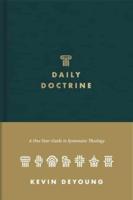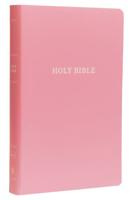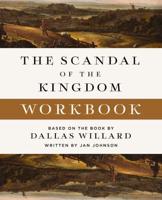Publisher's Synopsis
On the first Sunday of July 1750, Jonathan Edwards preached his farewell sermon to the congregation in Northampton, Massachusetts, ten days after they had dismissed him as their pastor. Edwards had been called to the church as assistant pastor in 1726, and upon the death of his grandfather, Solomon Stoddard, had succeeded him as pastor. During his time, the church gained a reputation for the great work of God that had been done there. However, tensions had been growing between Edwards and his congregation for some time, and eventually culminated in the Communion Controversy, the dispute over the basis upon which a person could be admitted to the Lord's Supper and become a full member of the church, which led to his removal.
Though much scholarship has been devoted to the reasons for Edwards' dismissal, less attention has been given to his sacramental theology. This is surprising, as Edwards held the Lord's Supper in high esteem. One reason for this neglect is the tendency to relegate his ecclesiology to an area of little importance. Another is that, apart from his writings on the Communion Controversy, Edwards did not offer a sustained treatment of the Supper in his sermons. However, Edwards did preach a considerable number of sermons on the subject over a twenty-seven year period. This study examines that body of sermon material, along with his writings on the Communion Controversy, and reveals that Edwards had a deeply sacramental view of the ordinance, and while his approach was within the bounds of orthodoxy, his theology of the Supper pushed the envelope of Reformed thinking. RECOMMENDATIONS This learned and judicious treatment of Jonathan Edwards' doctrine of the Lord's Supper is now the place to begin for serious readers. It places Edwards' doctrine reliably in historical, practical, and theological context, helping students understand the reasons Edwards was ejected from his pulpit in Northampton-and helping Christians participate in this sacrament more faithfully and holily. - Douglas A. Sweeney, Beeson Divinity School Samford University Popular Evangelical thinking about the Lord's Supper is a paltry affair, to say the least. One way forward to a greater appreciation of this vital means of grace is a renewed consideration of how the Table was viewed by our spiritual forebears. In this regard, David Luke's fresh and ground-breaking study of Jonathan Edwards' eucharistic theology would be an excellent starting-point. Highly recommended! - Michael A.G. Haykin, Chair and Professor of Church History The Southern Baptist Theological Seminary, Louisville, KY Students of Edwards have often concentrated on the communion controversy in Northampton, as a result of which Edwards lost his job. Yet every two months Edwards preached sacrament sermons which concentrated on Jesus Christ, the work of redemption, and Christian experience. This volume is an excellent introduction to the variety of perspectives these sermons offered on this spiritual feast. - Michael McClenahan, Professor of Systematic Theology Union Theological College, Belfast With meticulous attention to Edwards' writings and to his sermons, both published and unpublished, David Luke examines all the pertinent issues. The study is thorough, yet readable and accessible, must-reading for Edwards specialists and for all with an interest in the theology of the Lord's Supper and participation in it. - David McKay, Professor of Systematic Theology, Ethics and Apologetics, Reformed Theological College, Belfast and minister of Shaftesbury Square Reformed Presbyterian Church









